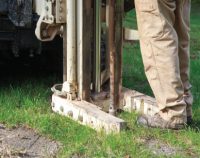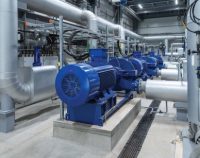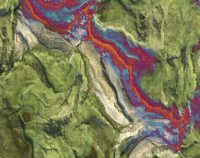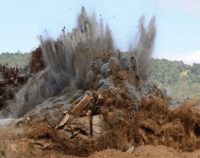Showing 41–60 of 69 results
Forecasting Solar Radiation and Photovoltaic Power: 5 PDH
$30.00 Add to cartSolar resource forecasting is critical for the operation and management of solar power plants and electric grids. In this course the student will understand the basic concepts and various methods of solar irradiance forecasting as well as forecasting the power production of Photovoltaic (PV) power plants.Instructor: Juan Pesante, PESPECIFIC KNOWLEDGE OR SKILL OBTAINED
This course teaches the following specific knowledge and skills:
- Explain empirical and physical solar forecasting methods
- Explain statistical and machine learning methods
- Discuss forecasting the production of a PV power plant
- Discuss statistical error measures
- Explain probabilistic solar forecasts
CERTIFICATE OF COMPLETION
You will be able to immediately print a certificate of completion after passing a 20 question multiple-choice quiz. The quiz can be retaken unlimited times until a passing grade of 70% or better is earned. This course satisfies five (5) hours of professional development (PDH).
Preview CourseClick “Preview Course” to view prior to purchaseClick “Add to Cart” to purchaseFundamentals of Biodiesel: 4 PDH
$24.00 Add to cartIn this online course a student will understand biodiesel and biodiesel blends and practical guidelines for using in place of standard diesel, this includes characteristics, storage and safety issues, and procedures for using in compression-ignition engines and boilers. Instructor: Seth Grablow, PESPECIFIC KNOWLEDGE OR SKILL OBTAINED
This course teaches the following specific knowledge and skills:
- Understand biodiesel and biodiesel blends
- Explain biodiesel benefits and attributes
- Discuss biodiesel blends and characteristics
- Explain safety, health, & environmental issues with biodiesel
- Understand storage and material compatibility
CERTIFICATE OF COMPLETION
You will be able to immediately print a certificate of completion after passing a twenty (20) question multiple-choice quiz. The quiz can be retaken unlimited times until a passing grade of 70% or better is earned. This course satisfies four (4) continuing education hours (CEH)/professional development hours (PDH) of continuing education.
Preview CourseClick” Preview Course” to View Prior to PurchaseClick “Add to Cart” to Purchase and Access QuizFundamentals of Wood Construction: 3 PDH
$18.00 Add to cartIn this course the student will understand the basics of wood in construction including common woodworking techniques for construction.This course is designed to bridge the gap in knowledge between engineers & building trade professionals.Instructor: Raymond Bosek, PESPECIFIC KNOWLEDGE OR SKILL OBTAINED
This course teaches the following specific knowledge and skills:
- Describe the types, sources, uses, and characteristics of the common woods used on various construction projects
- Explain the various methods and joints associated with woodworking
- Identify the different types of fastening devices
- Identify common trade terms
CERTIFICATE OF COMPLETION
You will be able to immediately print a certificate of completion after passing a 15 question multiple-choice quiz. The quiz can be retaken unlimited times until a passing grade of 70% or better is earned. This course satisfies 3 professional development hours (PDH) of continuing education.
Preview CourseClick “Preview Course” to View Prior to PurchaseClick “Add to Cart” to Purchase and Access QuizGeotechnical Subsurface Exploration for Roadways: 5 PDH
$30.00 Add to cartIn this course the student will understand the essentials of subsurface explorations for roadways with a comprehensive overview including site preparation, sampling methods, types of testing and methods, as well as standard guidelines and recommendations.Instructor: Raymond Bosek, PESPECIFIC KNOWLEDGE OR SKILL OBTAINED
This course teaches the following specific knowledge and skills:
- Discuss preparing for subsurface explorations
- Explain field reconnaissance and setting-up a exploration program
- Discuss sampling techniques and tools
- Explain various tests in addition to the standard penetration test (SPT)
- Understand guidelines for minimum exploration
CERTIFICATE OF COMPLETION
You will be able to immediately print a certificate of completion after passing a 20 question multiple-choice quiz. The quiz can be retaken unlimited times until a passing grade of 70% or better is earned. This course satisfies five (5) hours of professional development (PDH).
Preview CourseClick “Preview Course” to view prior to purchaseClick “Add to Cart” to purchaseHazardous Waste Identification: 2 PDH
$12.00 Add to cartThis course covers hazardous waste regulated by the EPA under the Resource Conservation and Recovery Act (RCRA), starting with determining whether what waste is considered a solid waste according to the RCRA regulations and moving on to determining if it fits one of the RCRA requirements for being a hazardous waste.Instructor: Raymond Bosek, PEThis course covers hazardous waste regulated by the EPA under the Resource Conservation and Recovery Act (RCRA), starting with determining whether what waste is considered a solid waste according to the RCRA regulations and moving on to determining if it fits one of the RCRA requirements for being a hazardous waste.
SPECIFIC KNOWLEDGE OR SKILL OBTAINED
This course teaches the following specific knowledge and skills:
- Fundamentals of the hazardous waste identification process
- Definition of hazardous waste & solid waste as used by RCRA
- How to identify listed hazardous wastes and their characteristics
- Interpretation of the mixture and 'derived-from' rules
- Interpretation of the contained-in policy
CERTIFICATE OF COMPLETION
You will be able to immediately print a certificate of completion after passing a 16 question multiple-choice quiz. The quiz can be retaken unlimited times until a passing grade of 70% or better is earned. This course satisfies 2 professional development hours (PDH) of continuing education.
Preview CourseClick “Preview Course” to View Prior to PurchaseClick “Add to Cart” to Purchase and Access QuizHurricane Mitigation: Summary Report On Building Performance: 3 PDH
$18.00 Add to cartAfter major hurricane disasters, the Federal Emergency Management Agency (FEMA) dispatches Building Performance Assessment Teams (BPATs) to evaluate the successes and failures of buildings to withstand the wind and flood forces of these storms. The teams document the results of their evaluations in building performance assessment reports. This 3-hour online course summarizes the BPAT reports for Hurricane Katerina.Instructor: Raymond Bosek, PEAfter major hurricane disasters, the Federal Emergency Management Agency (FEMA) dispatches Building Performance Assessment Teams (BPATs) to evaluate the successes and failures of buildings to withstand the wind and flood forces of these storms. The teams document the results of their evaluations in building performance assessment reports. This 3-hour online course summarizes the BPAT reports for Hurricane Katerina.
SPECIFIC KNOWLEDGE OR SKILL OBTAINED
This course teaches the following specific knowledge and skills:
- Describe the building and foundation types typically used in coastal areas
- Illustrate the ability of various building and foundation types to withstand coastal surge, riverine flood, and hurricane winds
- Explain design and construction practices that can reduce building damage in hurricanes
- Describe construction practices that can reduce building damage in hurricanes
CERTIFICATE OF COMPLETION
You will be able to immediately print a certificate of completion after passing a 15 question multiple-choice quiz. The quiz can be retaken unlimited times until a passing grade of 70% or better is earned. This course satisfies 3 professional development hours (PDH) of continuing education.
Preview CourseClick “Preview Course” to View Prior to PurchaseClick “Add to Cart” to Purchase and Access QuizImproving Energy Efficiency in Historic Buildings: 2 PDH
$12.00 Add to cartIn this course the student will learn the general concept of the most efficient methods to enhance energy efficiency of historic buildings, while limiting the damage done during the rehabilitation process.Instructor: Raymond Bosek, PEIn this course the student will learn the general concept of the most efficient methods to enhance energy efficiency of historic buildings, while limiting the damage done during the rehabilitation process.SPECIFIC KNOWLEDGE OR SKILL OBTAINED
This course teaches the following specific knowledge and skills:
- Inherent energy efficient features of historic buildings
- Concept of conducting an energy audit
- Actions to improve energy efficiency
- Dealing with moisture
- Applicable alternative energy sources
CERTIFICATE OF COMPLETION
You will be able to immediately print a certificate of completion after passing a 10 question multiple-choice quiz. The quiz can be retaken unlimited times until a passing grade of 70% or better is earned. This course satisfies two (2) professional development hours (PDH) of continuing education.
Preview CourseClick “Preview Course” to View Prior to PurchaseClick “Add to Cart” to Purchase and Access QuizImproving Fan System Performance: 4 PDH
$24.00 Add to cartIn this online course a student will understand fan systems, their components and operation, and various methods and guidelines to improve the performance for new or existing systems.Instructor: Seth Grablow, PESPECIFIC KNOWLEDGE OR SKILL OBTAINED
This course teaches the following specific knowledge and skills:
- Understand the basics industrial fan systems and components
- Identify fan selection and efficiency
- Discuss basic maintenance and common problems
- Explain configurations to improve fan efficiency
- Understand fan control and arrangements
- Explain fan economics and calculations used
CERTIFICATE OF COMPLETION
You will be able to immediately print a certificate of completion after passing a twenty (20) question multiple-choice quiz. The quiz can be retaken unlimited times until a passing grade of 70% or better is earned. This course satisfies four (4) continuing education hours (CEH)/professional development hours (PDH) of continuing education.
Preview CourseClick” Preview Course” to View Prior to PurchaseClick “Add to Cart” to Purchase and Access QuizImproving Motor and Drive System Performance: 5 PDH
$30.00 Add to cartThis course provides a thorough overview of motor and drive systems and their components and presents various methods and opportunities to enhance performance and increase efficiency.Instructor: Seth Grablow, PESPECIFIC KNOWLEDGE OR SKILL OBTAINED
This course teaches the following specific knowledge and skills:
- Understand motor and drive systems and their components
- Discuss various industrial uses for motor and drive systems
- Explain tools and methods to analyze systems
- Discuss performance enhancements at the system level
- Discuss performance enhancements at the component level
- Understand the economics of the system and systems management approaches
CERTIFICATE OF COMPLETION
You will be able to immediately print a certificate of completion after passing a 20 question multiple-choice quiz. The quiz can be retaken unlimited times until a passing grade of 70% or better is earned. This course satisfies five (5) hours of professional development (PDH).
Preview CourseClick “Preview Course” to view prior to purchaseClick “Add to Cart” to purchaseInnovative Building Technology: 5 PDH
$30.00 Add to cartIn this course the student will understand the design process of building and constructing modern innovative buildings using new technology products and methods to increase building efficiency, durability, and sustainability. Instructor: Raymond Bosek, PESPECIFIC KNOWLEDGE OR SKILL OBTAINED
This course teaches the following specific knowledge and skills:
- Discuss the four decision phases for any project
- Understand the economics of implementing new technologies into the design and construction
- Discuss cost/benefits into the decision making process
- Explain feasibility by performance and economics
- Discuss performance measures through design and construction
- Understand building efficiency, durability, and sustainability
- Become familiar with the evaluation tools and resources available during design and construction
CERTIFICATE OF COMPLETION
You will be able to immediately print a certificate of completion after passing a 20 question multiple-choice quiz. The quiz can be retaken unlimited times until a passing grade of 70% or better is earned. This course satisfies five professional development hours (PDH) of continuing education.
Preview CourseClick “Preview Course” to View Prior to PurchaseClick “Add to Cart” to Purchase and Access QuizInstallation, Maintenance, and Repair of Water and Sewage Systems: 5 PDH
$30.00 Add to cartIn this course the student will understand a facility’s water and sewage systems and associated common components as well as basic concepts in installing, maintaining, repairing and the operation and maintenance of these systems.Instructor: Seth Grablow, PESPECIFIC KNOWLEDGE OR SKILL OBTAINED
This course teaches the following specific knowledge and skills:
- Discuss the different types of plumbing fixtures commonly found
- Explain the operation of common plumbing fixtures
- Describe the procedures associated with plumbing repairs
- Explain the procedures for locating pipe leakage
- Describe installation and repair of common water and sewage components
- Describe maintenance and repair of common water and sewage components
- Explain procedures associated with sewer maintenance and repair
CERTIFICATE OF COMPLETION
You will be able to immediately print a certificate of completion after passing a 20 question multiple-choice quiz. The quiz can be retaken unlimited times until a passing grade of 70% or better is earned. This course satisfies five (5) hours of professional development (PDH).
Preview CourseClick “Preview Course” to view prior to purchaseClick “Add to Cart” to purchaseLaboratory Testing for Geotechnical Design and Construction: 5 PDH
$30.00 Add to cartIn this course the student will understand the intricate details of laboratory testing of subsurface soils and rocks in order to obtain values of their engineering properties necessary for design.Instructor: Raymond Bosek, PESPECIFIC KNOWLEDGE OR SKILL OBTAINED
This course teaches the following specific knowledge and skills:
- Explain common laboratory test methods
- Discuss laboratory testing equipment for soil and rock samples
- Discuss testing procedures
- Explain measured parameters
- Understand common guidelines for testing soils and rocks
CERTIFICATE OF COMPLETION
You will be able to immediately print a certificate of completion after passing a 20 question multiple-choice quiz. The quiz can be retaken unlimited times until a passing grade of 70% or better is earned. This course satisfies five (5) hours of professional development (PDH).
Preview CourseClick “Preview Course” to view prior to purchaseClick “Add to Cart” to purchaseMechanical Systems Commissioning: 6 PDH
$36.00 Add to cartIn this course the student will learn the various benefits commissioned mechanical equipment has to a facility by understanding the procedures in developing a commissioning program for mechanical equipment and the detailed processes effective in verifying proper system installation.Instructor: Seth, Grablow PESPECIFIC KNOWLEDGE OR SKILL OBTAINED
This course teaches the following specific knowledge and skills:
- Discuss the need for commissioning mechanical equipment
- Understand the commissioning process
- Explain commissioning of HVAC equipment
- Explain commissioning of Generators And Ancillary Equipment
- Explain commissioning of Air Compressors And Pneumatic Control Systems
- Explain commissioning of Fire Suppression Systems
- Explain commissioning of Cranes And Elevators
- Explain commissioning of Water And Sewage Treatment Systems
CERTIFICATE OF COMPLETION
You will be able to immediately print a certificate of completion after passing a 20 question multiple-choice quiz. The quiz can be retaken unlimited times until a passing grade of 70% or better is earned. This course satisfies six professional development hours (PDH) of continuing education.
Preview CourseClick “Preview Course” to View Prior to PurchaseClick “Add to Cart” to Purchase and Access QuizPonds- Planning, Design, Construction: 2 PDH
$12.00 Add to cartThis course provides guidance on some of the required criteria the United States Department of Agriculture (USDA) has in place for the planning, design, construction and maintenance of ponds. This course describes basic design principles of embankment and excavation ponds as well as construction requirements. This online PDH course is intended for hydrologists, civil engineers, agricultural engineers, construction engineers, municipal engineers, geotechnical engineers and environmental engineers.Instructor: Raymond Bosek, PEThis course provides guidance on some of the required criteria the United States Department of Agriculture (USDA) has in place for the planning, design, construction and maintenance of ponds. This course describes basic design principles of embankment and excavation ponds as well as construction requirements. Topics include: water needs, preliminary soil investigations, watershed & stormwater runoff estimation, basin sealing, spillways and inlets, and operation & maintenance. This online PDH course is intended for hydrologists, civil engineers, agricultural engineers, construction engineers, municipal engineers, geotechnical engineers and environmental engineers.
SPECIFIC KNOWLEDGE OR SKILL OBTAINED
This course teaches the following specific knowledge and skills:
- Become familiar with the general features and the differences of embankment and excavated ponds
- How to perform a preliminary investigation
- Be able estimate storm water runoff quantity and rate using the runoff curve number method
- Estimate time of concentration for a watershed for a given flow length and average watershed slope
- Advantages and disadvantages of a hooded or canopy inlet spillway and a drop inlet spillway
- Estimate earthfill requirements for an embankment for known end areas and embankment length
- Estimate embankment end area for known embankment height, side slopes, and top width
CERTIFICATE OF COMPLETION
You will be able to immediately print a certificate of completion after passing a 16 question multiple-choice quiz. The quiz can be retaken unlimited times until a passing grade of 70% or better is earned. This course satisfies 2 professional development hours (PDH) of continuing education.
Preview CourseClick “Preview Course” to View Prior to PurchaseClick “Add to Cart” to Purchase and Access QuizPrescriptive Method for Structural Insulated Panels (SIPs) in Construction: 3 PDH
$18.00 Add to cartIn this course the student will learn prescriptive requirements to facilitate the use of Structural Insulated Panels (SIPs) in wall systems for the construction of one- and two-family dwellings. Instructor: Raymond Bosek, PESPECIFIC KNOWLEDGE OR SKILL OBTAINED
This course teaches the following specific knowledge and skills:
- Explain SIP materials, shapes, & standard sizes
- Understand prescriptive provisions for wall thickness selection
- Discuss Above grade wall requirements
- Discuss SIP header & connection details
- Explain construction details to design and construct residential wall systems using SIPs
CERTIFICATE OF COMPLETION
You will be able to immediately print a certificate of completion after passing a 15 question multiple-choice quiz. The quiz can be retaken unlimited times until a passing grade of 70% or better is earned. This course satisfies three professional development hours (PDH) of continuing education.
Preview CourseClick “Preview Course” to View Prior to PurchaseClick “Add to Cart” to Purchase and Access QuizPrinciples of Hydraulic and Pneumatic Systems: 4 PDH
$24.00 Add to cartIn this course the student will understand the basics of hydraulics and pneumatics systems, hydraulics and pneumatics system components, and the operation and maintenance of these systems. Instructor: Seth Grablow, PESPECIFIC KNOWLEDGE OR SKILL OBTAINED
This course teaches the following specific knowledge and skills:
- Explain the operating principles of hydraulic systems
- Discuss operation characteristics and component functions
- Discuss maintenance procedures of a hydraulic system
- Describe the operating principles of pneumatic systems
- Identifying operational characteristics and service procedures applicable to pneumatic systems
CERTIFICATE OF COMPLETION
You will be able to immediately print a certificate of completion after passing a 20 question multiple-choice quiz. The quiz can be retaken unlimited times until a passing grade of 70% or better is earned. This course satisfies four (4) hours of professional development (PDH).
Preview CourseClick “Preview Course” to view prior to purchaseClick “Add to Cart” to purchaseProcess Design for Conversion of Biomass to Biofuels: 4 PDH
$24.00 Add to cartIn this course you the student will understand the motivation, process, design, and cost of converting biomass into biofuel. The focus of this course is to find a plausible pathway to convert algal carbohydrates and lipids to fuel and to minimize cost during production.Instructor: Raymond Bosek, PEIn this course you the student will understand the motivation, process, design, and cost of converting biomass into biofuel. The focus of this course is to find a plausible pathway to convert algal carbohydrates and lipids to fuel and to minimize cost during production.SPECIFIC KNOWLEDGE OR SKILL OBTAINED
This course teaches the following specific knowledge and skills:
- Why the motivation to exploit this energy supply
- Process design and cost estimation
- Economics and processing cost factors
- Analysis of processing research on case study
- Future research and opportunities
CERTIFICATE OF COMPLETION
You will be able to immediately print a certificate of completion after passing a 20 question multiple-choice quiz. The quiz can be retaken unlimited times until a passing grade of 70% or better is earned. This course satisfies four (4) professional development hours (PDH) of continuing education.
Preview CourseClick “Preview Course” to View Prior to PurchaseClick “Add to Cart” to Purchase and Access QuizPumped Storage Hydropower and Conduit Hydropower: 1 PDH
$6.00 Add to cartIn this online course a student will learn about the different ways pumped storage hydropower and conduit hydropower can enhance renewable energy portfolio's, the steps necessary to develop this new technology, and the common barriers encountered for deployment.Instructor: Seth Grablow, PEIn this online course a student will learn about the different ways pumped storage hydropower and conduit hydropower can enhance renewable energy portfolio's, the steps necessary to develop this new technology, and the common barriers encountered for deployment.
SPECIFIC KNOWLEDGE OR SKILL OBTAINED
This course teaches the following specific knowledge and skills:
- Understanding of pumped storage hydropower
- Understanding of potential hydropower from conduits
- Addresses the technical flexibility that existing pumped storage facilities can provide to support intermittent renewable energy generation
- Describing grid reliability benefits
- Understanding the differences between Pumped storage hydropower and conduit hydropower
- Safety aspects of constructing conduit hydropower projects on existing water-conveyance structures
- Current status and the future outlook for PSH in the United States
CERTIFICATE OF COMPLETION
You will be able to immediately print a certificate of completion after passing a 10 question multiple-choice quiz. The quiz can be retaken unlimited times until a passing grade of 70% or better is earned. This course satisfies three (1) continuing education hour (CEH)/professional development hour (PDH) of continuing education.
Preview CourseClick” Preview Course” to View Prior to PurchaseClick “Add to Cart” to Purchase and Access QuizRemote Sensing Essentials: 5 PDH
$30.00 Add to cartIn this course the student will understand the theory and practice of remote sensing and image processing. Remote sensing is valuable tool for engineers and surveyors as it provides a cost-effective means of surveying, monitoring, and mapping objects at or near the surface of the Earth.Instructor: Raymond Bosek, PESPECIFIC KNOWLEDGE OR SKILL OBTAINED
This course teaches the following specific knowledge and skills:
- Explain remote sensing and its applications
- Discuss the basic components of remote sensing
- Discuss the history and future of remote sensing
- Understand three-dimensional (3d) data acquisition
- Describe elements of processing geospatial data
- Explain image enhancements
- Explain Digital Elevation Models (DEMs)
CERTIFICATE OF COMPLETION
You will be able to immediately print a certificate of completion after passing a 20 question multiple-choice quiz. The quiz can be retaken unlimited times until a passing grade of 70% or better is earned. This course satisfies five (5) hours of professional development (PDH).
Preview CourseClick “Preview Course” to view prior to purchaseClick “Add to Cart” to purchaseRock Excavations Blasting Design Part 1: 6 PDH
$36.00 Add to cartIn this course the student will understand the fundamentals of blasting for rock excavations by learning the art and design of using explosives for the removal of rock and similar materials for construction activities. This is part 1 of a 2 part series.Instructor: Raymond Bosek, PESPECIFIC KNOWLEDGE OR SKILL OBTAINED
This course teaches the following specific knowledge and skills:
- Discuss the history of explosives in construction
- Identify basic blasting terminology
- Explain the different types of explosives
- Determine optimal explosives for use cases
- Discuss the various types of initiation systems
- Discuss common geology encountered and blast design characteristics
- Explain site exploration activities and common hazards
CERTIFICATE OF COMPLETION
You will be able to immediately print a certificate of completion after passing a 20 question multiple-choice quiz. The quiz can be retaken unlimited times until a passing grade of 70% or better is earned. This course satisfies 6 professional development hours (PDH) of continuing education.
Preview CourseClick “Preview Course” to View Prior to PurchaseClick “Add to Cart” to Purchase and Access Quiz




















